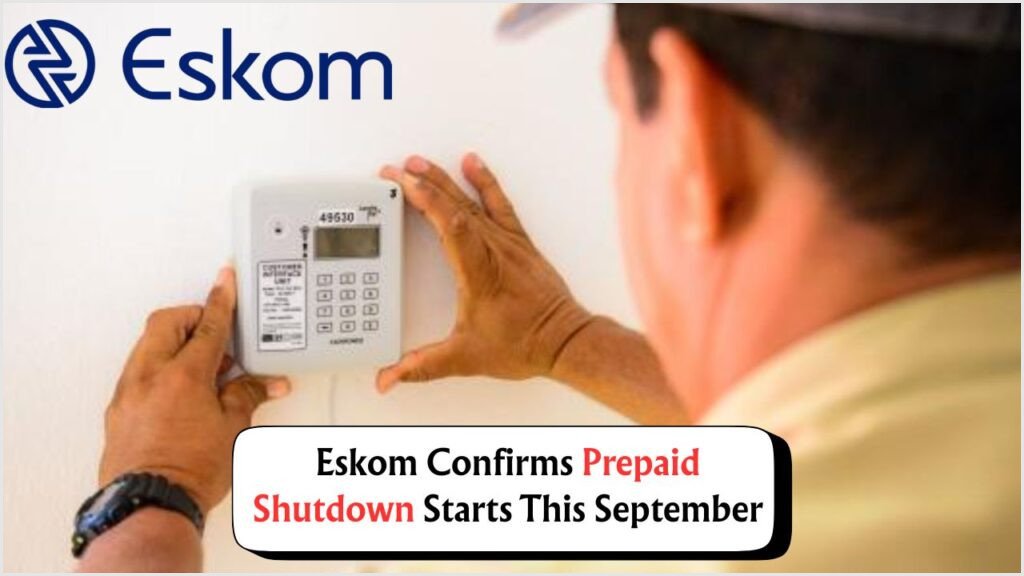South Africa’s Prepaid Electricity Meters: Understanding the nuances of South Africa’s prepaid electricity meters has become essential with the introduction of new Eskom tariff code rules effective from September 1. These changes impact how South Africans manage their electricity consumption and expenses. As a nation heavily reliant on prepaid meters, it is crucial to grasp these modifications to ensure seamless electricity access. This article delves into the details of the new tariff code rules, offering insights on how they affect daily life, potential cost implications, and tips on optimizing electricity use under the new system.
New Eskom Tariff Code Rules for Prepaid Meters
The recent changes in Eskom’s tariff codes aim to streamline electricity usage and promote energy efficiency across South Africa. These new rules require consumers to be more vigilant about their electricity consumption patterns. One significant change is the introduction of time-of-use tariffs, where electricity prices vary depending on the time of day it is consumed. This encourages consumers to shift their electricity usage to off-peak hours, potentially reducing their overall electricity costs.
- Time-of-use tariffs: Variable pricing depending on peak and off-peak hours.
- Encouragement of energy-saving practices among consumers.
- Potential reduction in electricity costs with strategic usage.
- Need for consumers to adapt to new billing patterns.
Understanding Time-of-Use Tariffs
- Peak hours generally see higher electricity rates.
- Off-peak hours offer reduced rates, encouraging usage during these times.
- Critical peak hours may incur additional charges.
- Smart meters can help track and manage consumption efficiently.
- Consumers need to adjust their schedules to benefit from lower rates.
Impact on South African Households
With the implementation of these new tariffs, South African households need to reconsider their electricity usage habits. The financial implications of these changes can be significant, making it vital for consumers to stay informed and adapt accordingly. For instance, households that primarily use electricity during peak hours may face higher bills unless they adjust their consumption patterns. The introduction of smart meters can aid in monitoring and managing electricity use more effectively, offering real-time insights into consumption trends.
- Adapting to new consumption patterns is essential.
- Smart meters provide detailed usage data.
- Potential for cost savings with strategic electricity use.
- Increased awareness of energy consumption among households.
Strategies for Optimizing Electricity Use
To make the most of the new Eskom tariff code rules, consumers can adopt several strategies to optimize their electricity use. One effective approach is scheduling high-energy activities, such as laundry or dishwashing, during off-peak hours. Additionally, investing in energy-efficient appliances can significantly reduce overall electricity consumption. Educating family members about energy-saving practices and regularly reviewing electricity bills can also help identify areas for improvement and cost savings.
| Strategy | Description | Benefit | Cost | Implementation |
|---|---|---|---|---|
| Time Management | Shift usage to off-peak hours | Lower costs | None | Immediate |
| Energy-Efficient Appliances | Invest in appliances with high energy ratings | Reduced consumption | Moderate | Long-term |
| Family Education | Teach energy-saving practices | Increased awareness | None | Continuous |
| Regular Reviews | Analyze monthly bills for trends | Identify savings | None | Monthly |
| Smart Meter Installation | Monitor real-time consumption | Better management | Initial cost | Once-off |
Advantages of Prepaid Meter Systems
Prepaid electricity meters offer several advantages that align with the new tariff rules. These meters provide consumers with greater control over their electricity usage, allowing them to monitor and manage their consumption in real-time. This transparency helps households make informed decisions about when and how much electricity to use. Additionally, prepaid systems eliminate the risk of unexpected bills, as consumers pay for electricity in advance. This budget-friendly approach ensures that households can manage their finances more effectively, especially in times of economic uncertainty.
Common Challenges Encountered
- Adjusting to new time-of-use tariffs can be challenging initially.
- Lack of awareness about energy-saving practices among some consumers.
- Initial costs of installing smart meters can be a barrier for some households.
- Inconsistent power supply may affect prepaid systems.
- Technical issues with meters can cause temporary disruptions.
- Adapting to new billing patterns requires time and effort.
The Role of Technology in Energy Management
| Technology | Function | Benefit | Usage |
|---|---|---|---|
| Smart Meters | Real-time monitoring | Better consumption control | Household |
| Mobile Apps | Usage tracking and alerts | Convenient management | Personal |
| Energy-Efficient Appliances | Reduced power usage | Lower bills | Household |
| Internet of Things | Automated energy management | Improved efficiency | Commercial |
| Data Analytics | Consumption analysis | Informed decision-making | Industry |
FAQ Section
What are the new Eskom tariff rules?
The new tariff rules introduce time-of-use pricing, encouraging consumers to use electricity during off-peak hours to save on costs.
How can I adapt to the new prepaid meter system?
Consumers can adapt by shifting high-energy activities to off-peak times and investing in energy-efficient appliances.
What are the benefits of using prepaid meters?
Prepaid meters offer real-time usage monitoring, budget control, and eliminate unexpected bills.
Are there any challenges with the new tariff system?
Challenges include adjusting to new pricing patterns and the initial costs of installing smart meters.
How does technology aid in managing electricity usage?
Technology, such as smart meters and mobile apps, provides real-time data and alerts, aiding in efficient energy management.
What changes did Eskom implement for prepaid electricity meters in South Africa?
New tariff code rules effective from September 1.





